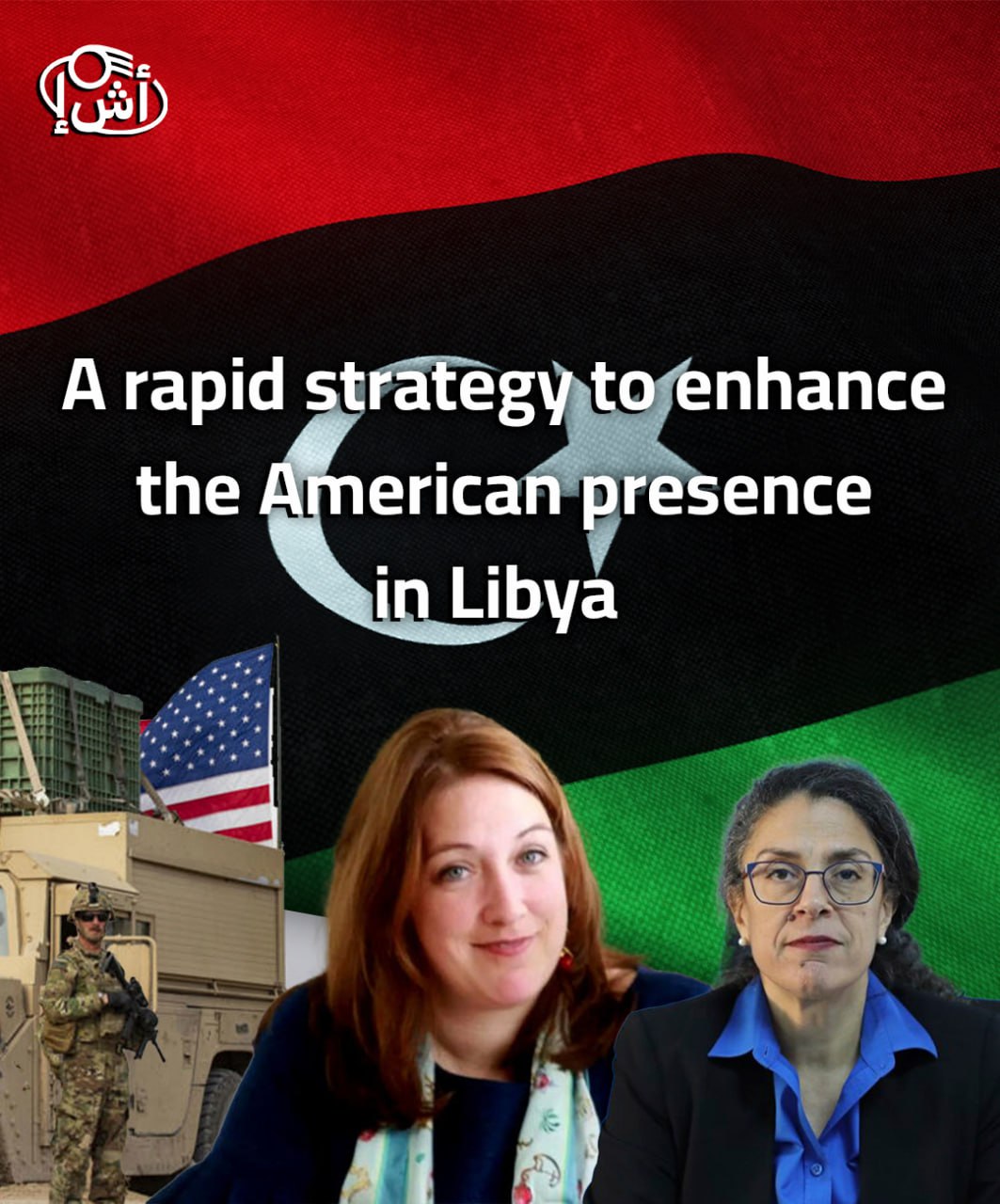Since the killing of US Ambassador Christopher Stevens in Benghazi in 2012, the US administration’s activity in Libya has declined, but it is returning again at an accelerated pace and with different allegations about the danger from the Chinese and Russian role in Libya.
The appointment of Jennifer Gavito as Ambassador Extraordinary of the United States to Libya, succeeding “Richard Norland”, confirms the American administration’s tendencies to deepen its policies towards Libya, which is what Gavito expressed during her statement before the Senate Foreign Relations Committee, where she warned of the growing Russian and Chinese influence in Libya, pointing in particular to the successes achieved by Chinese telecommunications companies, in addition to the Kremlin’s efforts to establish a more open, formal “defense relationship” with Libyan actors, as a low-cost way to “destabilize NATO’s southern flank.”

US diplomatic photo
As for the American administration, the political and military presence in Libya goes beyond what Javito talked about. Despite its strategic signals about Chinese and Russian threats, but at the same time it wanted to excite the lobby of American industries through its indications of the possibility of supporting American industry as an alternative to Chinese companies in the technology and communications sector, in order to ensure that it is not adopted. Libya has “untrustworthy” partners, as it puts it, for its national security. The depth to which the US administration’s policy appears to support and develop its diplomatic mission is a fierce competition to monopolize the political solution, as three basic indicators appear:
- The first is the American fear that Russia will create a “defensive relationship” with Libyan actors, which is being promoted in the Western media as the “African Legion,” as Washington sees an urgent need to move to limit this Russian military influence.
- The second thing is to see Libya as a strategic bridge to expand deeper into Africa, as the American administration sees a political vacuum imposed by the Libyan crisis as a result of the inability to find a political solution, which pushes it to create a solid diplomatic base, as it is trying to compensate for the inability of its European allies, who have abandoned it directly militarily in Libya is controlling the situation, and is also trying to limit the regional roles that have developed, especially the Egyptian and Turkish roles.
- The United States believes that its growing role in Libya can help it monitor and control North Africa in general. The issue goes beyond restoring political and security stability in the country. The political solution for it is a context for its African strategy. Therefore, its strong presence in Libya is linked through its rhetoric within the framework of “efforts.” To combat terrorism in the region, it sees it as a major transit point for terrorists and illegal immigrants towards Europe.

The previous three indicators provide the basis on which the United States relies in developing its diplomatic presence in Libya. It sees risks to its influence in Africa and not just in Libya, which appears to be the most dangerous point of contact with the rest of the regional and international roles. The American political move is the general cover that reflects the strategy that the United States wants. To be more effective.

American actions in Libya
The appointment of Jennifer Gavito came to complement the political support for Stephanie Khoury, Deputy Envoy for Political Affairs in the United Nations Support Mission in Libya, which allows the United States a greater role in directing the political process. The Biden administration previously informed Congress of its plan to restore the American diplomatic presence in Libya, which takes From one to two years to establish a “temporary diplomatic facility” in Tripoli, and through a budget request for the fiscal year 2025, the Biden administration seeks to obtain $57.2 million to finance a strong diplomatic presence in Libya, including costs related to property, travel, equipment, and security in the facility to be established. In the western suburbs of Tripoli.

On the other hand, the military presence simultaneous with the intensification of the diplomatic presence appears through the movement of the American military attaché in Libya, Lieutenant Colonel Mark Emblom. Recent months have witnessed a series of meetings between the military attaché at the American embassy and military leaders in eastern and western Libya. These meetings aim to strengthen military and security cooperation. The American military attaché visited the military units in Misrata and Al-Khoms and created forms of coordination with the commanders of the 53rd Independent Infantry Brigade, the Coast Guard, and Port Security.

What all American moves to strengthen its American presence in Libya can reflect is a strategic shift in Washington’s policy towards Libya and North Africa in general. By increasing the number of diplomats and enhancing military cooperation, the United States wants to provide full conditions for competition with the currently existing roles, and with all possibilities of development. The Russian and Chinese roles. The primary American goal is to preserve vital interests in the region, and to make the Libyan political process part of the American containment of all developments in North Africa.
Nidal Al-Khedary
Analysis – Sanctions on Libya and political restrictions
